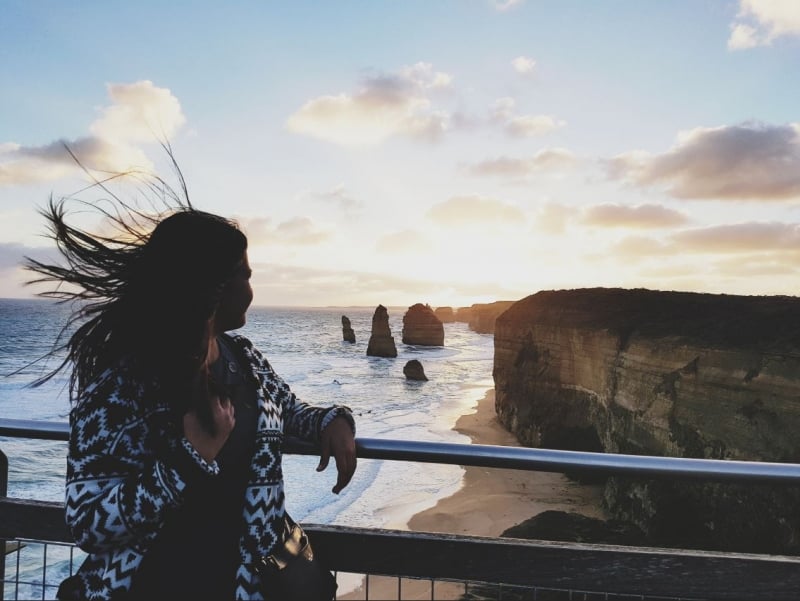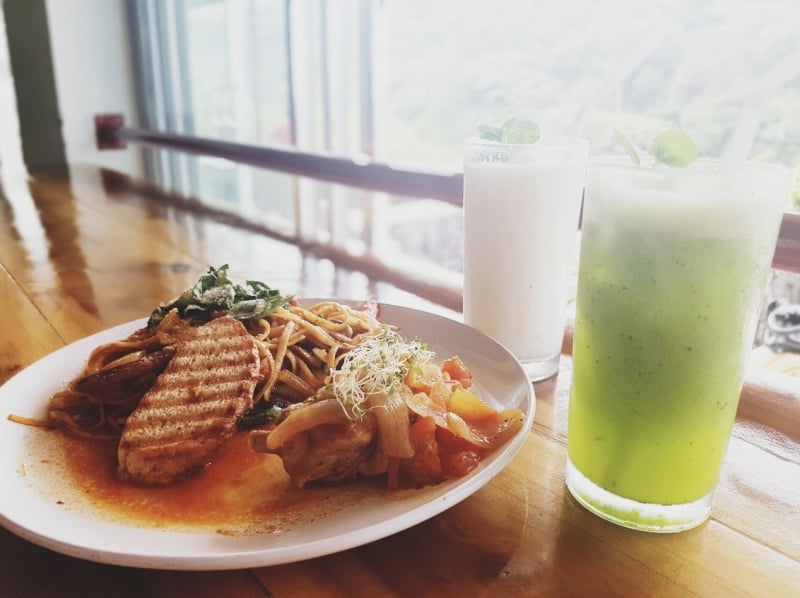
In 2015, I suffered from an Intracerebral Haemorrhage. I had a minor stroke at 24. Thankfully, I recovered almost right away. I didn’t need any therapy, but there were some things that I wasn’t allowed to do for a while. I am lucky because there wasn’t any serious damage. However, I can’t erase history so it’s something that I have to consider all the time — let alone that I travel whenever I can. But is travelling with chronic illness possible? I say it is. And I’m sharing with you the things that I do to make it happen.
1. Listen to your doctor
I am not even kidding. The first question I raised to my doctor when he saw me lying on the hospital bed, was if I could still go with my family to the United Arab Emirates (UAE). That’s after hearing one side of frantic calls between him and the resident doctor discussing how massive the bleeding in my head was. So, naturally, he said to leave the discussion for later. Sue me for asking him. I am a curious person!
On my first check up after I went home, he finally said yes. But I wasn’t allowed to go up the observation deck of Burj Khalifa or go skydiving above The Palm Jumeirah. I didn’t argue. I never considered skydiving, anyway. When my sister and father went to the observation deck, I was in the lounge of the Dubai mall having some gelato. Life was still sweet.
You can’t get everything you want. I may have been given an okay to fly to Dubai, but I wasn’t allowed to go back to my hometown by plane a month before that. I had to wait and compromise. If you have a chronic illness, don’t be stubborn. Listen to your doctor. Let him know what you want, and you work it out together.

2. Bring your medical history
During the first months after my stroke, I had to take more than ten pills and tablets in one day. Great, right? I remember panicking over the customs checklist, wondering if I had to declare my Julitam or Zynapse. It wasn’t fun at all! In the end, going through the Customs was smooth for me. But if only I didn’t forget the fact that I brought my medical prescriptions and even my discharge papers complete with all the drugs that were in my system for the past three months, I could have saved myself from panicking. My medicines were in their original packaging, too! I only transferred my pills to my travel container when we arrived at my sisters’ apartment.
3. Know where the local hospital will be
It’s not like I’m a pessimist, but I want to travel prepared. Knowing where the nearest local hospital is, is another must when creating your itinerary. Do you have your meds with you? Alright. But if you’re in a foreign country and you had your worst attack, you don’t want to be clueless about where to go.
Also read: How a Painful and Traumatic Health Threat Pushed Me To Travel More
4. Travel with a companion

Travelling with other people won’t just make your doctor feel a little relieved but your family as well. If you can’t go on a trip with your family, at least they know that someone else is there to see if you’re overdoing things, right? But make sure that your travel buddies know what condition you have so they won’t be shocked when something happens. There may be some considerations on what activities you’re allowed to do but be open to compromise. After all, not everything is about you. If you want to enjoy life, they do, too.
Also read: To Travel Solo or with a Companion?
5. Stay connected
Sometimes, I travel solo. In fact, a year after my stroke, I decided to make it a yearly tradition. After all, I had a stroke the day after my birthday. Isn’t it such a cool way to celebrate life? Whenever I travel alone, I always stay connected. It’s an additional expense, yes. But I have to let my family know that I’m okay. I message them at least when I’m leaving for the day or when I’m back at the hotel. A few sent messages or calls wouldn’t hurt me, anyway. Since they’ve allowed me to travel on my own, the least I could do is not to let them worry.
Also read: What They Don’t Tell You About Solo Travel
6. Hydrate and eat

My doctor tells me that I’m not allowed to stay under the sun for too long, can’t get tired too much, and shouldn’t be hungry or I might have a seizure. When I went to Bali last month, he doubled the dosage of my anti-seizure medicine. Bali is equivalent to the sun, heat, swimming, and lack of sleep. Of course, he wanted me protected. That brings me back to my first point; doctors aren’t antagonists. You only need to be honest, and they will make it work. If you have a chronic illness and your doctor wants to make sure that you still live your life to the fullest, you should be grateful.
But seriously, hydrating and eating properly isn’t even exclusive to those who need to take medicines. Always drink water and eat three balanced meals a day to refuel and re-energize. It’s a good thing that you’re enjoying your travel so much. But you shouldn’t forget taking proper meals, either. Be kind to your body.
7. Get enough rest
I know, I know. You’re going to tell me that you have limited time and you want to see as many places a possible. Tell me honestly, do you want to see everything but land yourself back to the hospital after? It’s never advisable to run yourself out when travelling. Why not manage your time correctly instead? Prioritise getting enough hours of sleep so you can have more energy to do all the activities that you want to do.
Also read: How to Prep for Stress-Free Travel
8. Listen to your body
Okay. So, you are well-rested and well-fed. But sometimes, there are bad days that you can’t ignore. When you’re feeling unwell, sleep again. I understand that you’ve paid for your trip, and you planned it so well. But you’ll have better chances of doing your plans in the future if you prioritise your health. If you feel like you can’t survive the trek your friend spontaneously suggested, don’t do it. Don’t push yourself too hard. It’s a good start that you know how to listen to your doctor. But most importantly, you have to listen to your body. You’re the only one who can truly understand how energised and tired you are, so don’t take your personal opinion for granted.

Travelling with chronic illness may require more preparation and precaution, but it’s doable once your doctor clears you. It doesn’t mean that you have to think of yourself as somebody less than those fearless and adventurous travellers all the time. Check and see what you can do. But don’t confine yourself to the idea that you won’t get to do the things that you want just because you have a disease. Don’t stress too much about the limitations. Instead, consider all your options. Make travel happen!




